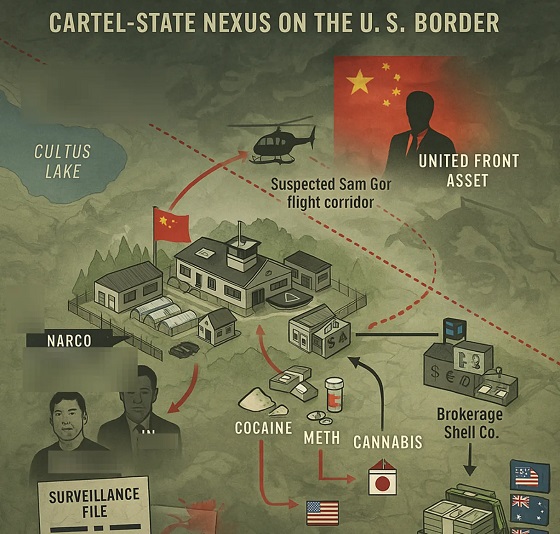Energy
A balanced approach shows climate change has been good for us: Alex Epstein

The most heretical idea in the world
My talk at Hereticon about the moral case for fossil fuels.
Last week I gave a talk at the second annual Hereticon conference, hosted by Mike Solana and the Founder’s Fund team. (Founder’s Fund is led by Peter Thiel, the famous entrepreneur and investor. See two of my past discussions with Peter here and here.)
Here’s the full transcript and Q&A. (Audience member questions are paraphrased to protect anonymity.) I’m hoping the video will be available soon.
Alex Epstein:
All right, so I’m going to start out by taking a poll of where the audience is. Here’s the question: What is the current state of our relationship with climate?
I’m going to give you four options. Are we experiencing: a climate catastrophe, climate problem, climate non-problem, or climate renaissance? Raise your hand when you hear the one that you think best reflects the current state of our relationship with climate.
- Climate catastrophe — in most audiences, this would be much less of a minority view.
- Climate problem — probably about half the room.
- Climate non-problem — a bunch of people.
- Climate renaissance — okay, that’s the record.
So here’s what’s interesting about this issue, what I would call the “designated expert” view. The view of the people we’re told to give us guidance on these issues is that we’re obviously in a climate catastrophe that’s becoming an apocalypse; maybe some will say a climate problem on the verge of catastrophe.
And yet empirically, if you look at how livable our climate is from a human-flourishing perspective, it’s undeniable that it’s never been better.
This is a chart of what’s happened in the atmosphere. We’ve put in more CO2, and that indeed has caused some warming and has other climate effects. But at the same time, the death rate from climate disasters—so storms and floods, extreme temperatures, et cetera—has gone way down. It’s gone down actually 98% in the last century.
This means that a typical person has 1/50 the chance of dying from a climate disaster compared to what somebody used to have. And if you look at things like damages, we’re not actually more threatened by climate. If you adjust for GDP, we’re safer from climate still.
The reason I raise this is: we have this situation where the supposed experts on something say that we have a catastrophe, and yet in reality, it’s never been better from a human-flourishing perspective. And this is independent of the future. So you could say, “Well, I think it’s going to get worse in the future.” But their view is about the present; they describe us as in a climate crisis or climate emergency now.
So what’s going on here? What’s going on here is very important because it shows that the mainstream “expert” view of fossil fuels and climate is not just based on facts and science, it’s based on a certain moral perspective on facts and science—because from a human flourishing perspective, we’re in a climate renaissance. What’s going on is what I call their moral standard or standard of evaluation.
The way they evaluate the world in a particular climate is not in terms of advancing human flourishing on Earth, but of eliminating human impact on Earth. And this is the dominant idea, this is the way we’re taught to think about climate: that a better climate, a better world, is one that we impact less and a worse one is one that we impact more.
I think this is the most evil idea. I think human beings survive and flourish by impacting nature. This idea that we should aspire to eliminate our impact is an anti-human idea. And I think that if we look at this issue from a pro-human perspective—from the perspective that a better world is one with more flourishing, not less human impact—that totally changes how you think about fossil fuels.
I’m going to give you a bunch of facts—but these are not right-wing facts or something. These are all either primary source facts or they are just mainstream climate science. What I’m doing differently is I’m looking at the facts and science from a consistently human flourishing perspective, and that’s something that unfortunately almost nobody else does.
But what’s good is I think if most people realize that they’re not thinking about it in a pro-human way, they’ll want to think about it in a pro-human way, and then we can really change energy thinking for the better.
If we’re going to apply this idea of advancing human flourishing as our standard, if we’re going to do it consistently, there’s basically one rule we need to follow, which is we need to be even-handed. By even-handed, I mean we need to carefully weigh the benefits and side effects of our alternatives, just as you would do if you were deciding to take an antibiotic: what are the benefits and side effects of this? How does that compare to the alternatives?
When it comes to fossil fuels and climate—and I want to focus on climate because there are other side effects of fossil fuels like air pollution and water pollution, but those aren’t really the reason people hate fossil fuels. Those have gone way down in the past few decades, and hatred for fossil fuels has gone way up. So it’s really about the climate issue.
When we’re thinking about fossil fuels and climate, there are four things we need to look at to be even-handed. And feel free to challenge this in the question period, but literally nobody has ever been able to challenge this, and I’ve debated every single person that was willing to debate.
So one is you need to look at what I call the general benefits of fossil fuels. Then you need to look at what I call the climate mastery benefits of fossil fuels. You need to look at the positive climate side effects of fossil fuels. And then of course, you need to look at the negative climate side effects of fossil fuels.
My contention is when you do this from a human flourishing perspective, it’s just completely obvious that we need to use more fossil fuels, and that this idea of getting rid of fossil fuels by 2050 is the most destructive idea, even though it’s literally the most popular political idea in the world today. Getting rid of fossil fuels is advocated by leading financial institutions, leading corporations, almost every government in the world has agreed to it. So it’s literally the most heretical thing you could say to say that we should use more fossil fuels, and yet I’m going to argue that it’s obvious and the mainstream view is just insane.
Let’s look at the general benefits of fossil fuels. What are the benefits we’re going to get if we’re free to use fossil fuels going forward that we’ll lose to the extent that we are not? And the mainstream view, epitomized by this guy Michael Mann, who’s one of our leading designated experts, is there really no benefits. He has a whole book on fossil fuels and climate, pictured here, and he says essentially nothing about the benefits of fossil fuels—and this is pretty conventional.
Now, I’m going to argue that the benefit of fossil fuels is literally that 8 billion people have enough energy to survive and flourish. And they are basically three points I think we need to get to get this. One is that fossil fuels are uniquely cost-effective. What somebody like Michael Mann and others have been saying for years, though it’s going out of favor, is that fossil fuels don’t really have any benefits because we can rapidly replace them with intermittent solar and wind.
And again, fortunately this is going out of favor now, but it never really made any sense. What we see if we look at the facts is fossil fuels have had 100 plus years of aggressive competition. They have had enormous political hostility for the last 20 years, and yet they’re still growing despite this. So there’s something special about them.
And then to further confirm this, the places that care most about cost-effective energy are committed to using more fossil fuels. So China has 300 plus new coal plants in the pipeline. And then of course, the AI data center world is doubling and tripling down on natural gas because that’s the most cost-effective thing.
By cost-effective, I mean four things. Affordability—how much can a typical person afford? Reliability—is it available when needed in the exact quantity needed? Versatility—can it power every type of machine, including things like airplanes and cargo ships that are hard to do with anything besides oil until we get a really good nuclear solution? And then scalability—is this available to billions of people in thousands of places?
I think the evidence is really clear, there’s nothing that can compare to fossil fuels in terms of making energy available to billions of people that’s affordable, reliable, and scalable.
And so what that means is to the extent we restrict fossil fuels, people have less energy, which brings me the second point about the benefits of fossil fuels, which is that it is the worst thing imaginable to deprive people of energy because energy determines how much we can flourish on Earth. By flourish, I mean live to our highest potential, so with lives that are long, healthy, and filled with opportunity. You can see, for example, in the cases of China and India, there’s a very strong correlation between energy use, which has dramatically gone up largely thanks to fossil fuels, and GDP and life expectancy.
And the basic reason is simple but profound. The more cost-effective energy is, the more we can use machines to be productive and prosperous. With machines, this naturally impoverished and dangerous world becomes an abundant and safe world. Without machines, life is terrible. Only fossil fuels can provide this for the vast majority of people.
So this is really an existential issue—and it becomes even stronger when you realize one final fact about the general benefits of fossil fuels, which is that the vast majority of the world is energy poor.
We have 6 billion people who use an amount of energy that we would all here consider totally unacceptable, and we have 3 billion people who use less electricity than a typical American refrigerator does.
So think about what this means—and maybe the most powerful area for me is to think about having a child.
My wife and I had our first child a little over four months ago. And if you’ve had a child, I’m sure you’ve had this exact experience where this tiny little fragile thing is born and you just think, “This is the greatest thing ever.” And then maybe soon after you have the thought, “The worst thing ever would be if something happened to him.”
And then you think about energy. Around the world, there are so many babies—particularly premature babies or any babies with any kind of challenges—where because they lack reliable electricity, they don’t have things like incubators, and millions of babies die. Millions of parents suffer the worst possible tragedy because they don’t have enough energy.
And yet we have a global movement saying, “You should not use the most cost-effective form of energy, which is fossil fuels.”
So this is really just the most important issue, and I think it’s supremely immoral that we’re trying to restrict the thing that billions of people need to survive and flourish.
Those are the general benefits of fossil fuels, which are just enormous, but that’s not even the only thing that our establishment ignores. There’s also very strong climate-related benefits, so what I call climate mastery benefits. How significantly does fossil fuel use, which is, again, a source of uniquely cost-effective energy, how much does that increase our ability to neutralize climate danger?
And this is really important because the more mastery you have over climate, the less any climate change, even a negative one, can be a problem. So for example, even for something like a drought—a drought can wipe out millions of people, but if you can do irrigation and crop transport, you can neutralize the drought.
And in fact, the more climate mastery you have, the more negatives don’t even become negatives. A thunderstorm that could wipe out a bunch of houses a few hundred years ago, that can become a romantic setting for a date now.
Mastery is that important. And yet our designated experts tell us there’s nothing to see here. The IPCC, which is the Intergovernmental Panel on Climate Change, the leading authority on how to think about this issue has thousands of pages of reports, and yet not once do they mention climate mastery benefits of fossil fuels.
And yet, as I pointed out, we’ve had a 98% decline in climate-related disaster deaths as we’ve used more fossil fuels. And this is not just a coincidental correlation. There’s a very strong causal relationship because fossil fuels have powered heating and air conditioning, storm warning systems, building sturdy buildings. And then as I mentioned, drought: we’ve reduced the drought-related death through irrigation and crop transport by over 99%.
So fossil fuels haven’t taken a safe climate and made it dangerous; they’ve taken a dangerous climate and made it safe. And if we have such enormous climate mastery abilities, that should make us a lot less afraid of any kind of future. Now, we need to look at another category to be even-handed.
People wonder about the negative climate side effects—we’ll talk about those—but also what about the positive climate side effects?
People have this idea—I think because they have this idea that our impact is just this bad thing—that there’s no such thing as a good climate side-effect. And we have this idea of, “Oh, us impacting the climate just means a world on fire.”
But actually one of the major effects of putting a lot more CO2 in the atmosphere is you have a much greener world. There are very strong arguments that we have trillions of dollars in benefits in terms of increased crop growth that we need to take account of in our calculation.
And then warming. People think of warming as, “Oh, warming is terrible, it means the Earth is on fire.” But the fact is that far more people die of cold than of heat. And warming for the foreseeable future is expected to save more lives than it takes, particularly because—most people don’t know this, but it’s a mainstream climate science—warming occurs more in colder regions and less in hot regions. It’s not like the whole world’s going to become scorching if the world becomes more tropical at a fairly slow pace.
So then what about these negative side-effects? Well, if you factor in the climate mastery benefits, there’s really nothing that should scare us.
There are certainly negative side-effects, for example, increase of heat waves. That for sure will happen and continue to happen, and faster sea level rise than we would otherwise have. But there’s nothing that should remotely scare us.
If you look at mainstream climate science, which has a lot of biases, if you factor in our climate mastery abilities, there are no overwhelming impacts that they project.
For example, sea level rise is the most plausible problem, and yet extreme projections by the UN, the most remotely plausible extreme projections are 3 feet in 100 years. That’s something we can deal with pretty readily. We already have 100 million people living below high tide sea level.
So I return to my basic point. If we’re pro-human, including even-handed—and we really look at this issue of fossil fuels from a pro-human perspective—the world is going to be a much better place if we use more fossil fuels, and it’s going to be a horrifically bad place if we rapidly eliminate fossil fuels. And I say a corollary of this is that policy-wise, the obvious policy is energy freedom.
We need the freedom to produce and use all forms of energy, including nuclear and including solar and wind, if and when they can really provide reliable electricity. We need as much cost-effective energy as we can get, and that’s going to make the world a much better place.
So hopefully I’ve persuaded some of you of this in this direction. But I think the next logical question, particularly this room, is, “Well, what do we actually do about this?” Because it’s one thing to talk about this, but I’m really not interested in just talking about this and selling books and whatever. I’m interested in: how do we actually change energy policy for the better, which is going to require changing energy thinking for the better?
And I want to share with you my approach because it is an approach that’s working really well. And my motivation for coming here is mainly I want to get a bunch of talented people excited about this approach.
Some of you can maybe be hired by us, some of you can join us in different ways. So let me give you my basic approach—and it’s simple: make it really easy to be an ally of the truth.
Often when people have a view that’s controversial but true, they kind of like being controversial. I mean, look, we’re at Hereticon, we’re sort of celebrating being heretical. But I personally don’t really like being heretical. If I think I’m right and the world depends on it, I want the world to become conventional with the truth. And so what I’ve done for the last 17 years on this issue is I’ve thought as much as I can about, “How do I create resources that make it as easy as possible for people to understand the truth and communicate the truth to others?”
And there are basically four things that we’ve been working on for the past few years that I want make you aware of.
So what is this book, Fossil Future? This is designed to be a completely systematic guide to how to think about energy and climate from a pro-human perspective that gives you totally how to think about it and addresses every single factual issue you could ever want to address. So if you want to, you can just become totally bulletproof and clear by reading this book
The second thing is called Energy Talking Points. This has really been my biggest breakthrough in persuasion, because the idea here is let’s make it super easy. We break down every single issue imaginable into tweet-length talking points. So if you want to know anything about energy, environment, or climate from a pro-human, pro-freedom perspective, you can just go to energytalkingpoints.com.
Browse hundreds of Energy Talking Points
And now we have Alex AI. So if you go to alexepstein.ai, you can ask that thing anything, and it is really, really good at answering questions as me.
Energy
Ontario Leads the G7 by Building First Small Modular Reactor
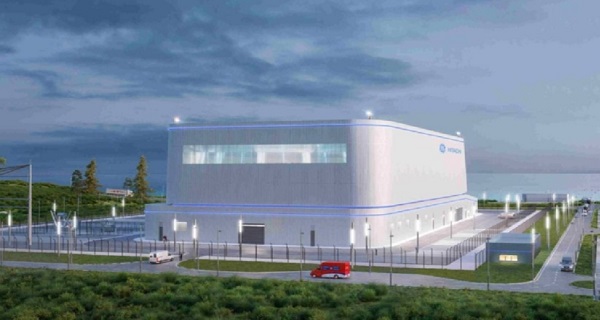
A concept image of a GE Hitachi BWRX-300 small modular reactor (SMR), the nuclear technology Ontario Power Generation is using for its new project adjacent to the existing Darlington nuclear plant. (GE-Hitachi)
From Energy Now
Construction will create 18,000 Canadian jobs, add up to $500 million annually to Ontario’s economy and help secure clean, reliable energy
With electricity demand in Ontario set to soar by at least 75 per cent by 2050, the Ontario government has approved Ontario Power Generation’s (OPG) plan to begin construction on the first of four small modular reactors (SMRs) at the Darlington nuclear site. Once complete, this SMR will be the first of its kind in the G7, producing enough reliable, affordable and clean electricity to power the equivalent of 300,000 homes, supporting thousands of good-paying jobs across the province and helping secure Ontario’s energy supply for decades to come.
The construction of the four units will support the government’s plan to protect Ontario’s workers and economy by creating up to 18,000 Canadian jobs and injecting $500 million on average annually into Ontario’s economy. The construction, operation and maintenance of the four units will add $38.5 billion to Canada’s GDP over the next 65 years. The government has worked with OPG to ensure that 80 per cent of project spending goes to Ontario companies and that construction and operations will protect Ontario workers and jobs by sustaining an estimated 3,700 highly-skilled, good-paying jobs for the next 65 years.
“This is a historic day for Canada as we start construction on the first small modular reactor in the G7, creating 18,000 jobs for Canadians,” said Stephen Lecce, Minister of Energy and Mines. “This nation-building project being built right here in Ontario will be led by Canadian workers using Canadian steel, concrete and materials to help deliver the extraordinary amount of reliable and clean power we will need to deliver on our ambitious plan to protect Ontario and unleash our economy.”
The BWRX-300 is a small-scale nuclear reactor that uses commercially available uranium to generate power. The four SMRs will be vital to powering new homes, historic investments to build Ontario and fuel a thriving economy. Once complete, they will produce 1,200 megawatts (MW) of electricity, enough to power the equivalent of 1.2 million homes, to help bridge a power gap that could emerge in the early 2030s in the absence of net-new baseload power sources added to the grid.
More than eighty Ontario companies have already signed agreements with OPG to deliver this first-of-a-kind project, establishing themselves as leaders in the growing domestic and global markets for new nuclear technologies. The government has also negotiated additional commitments from GE Hitachi that will create jobs in Ontario, that will soon be unveiled.
Ontario’s Independent Electricity System Operator (IESO) concluded that the Darlington New Nuclear Project is the best option to meet growing demand in terms of costs and risks, when compared against non-emitting generation alternatives. This, combined with OPG’s outstanding track-record on the Darlington Refurbishment Project, factored into the government’s decision to support the Darlington New Nuclear Project.
Within Canada, the Ontario government and OPG are collaborating with power companies in Alberta, Saskatchewan and New Brunswick as they work towards the deployment of SMRs in their jurisdictions. Around the world, the government has helped secure job-creating agreements that deploy Made-In-Ontario components to build SMR’s for the world.
Advancing construction on the Darlington New Nuclear Project SMRs is just one part of Ontario’s Affordable Energy Future, the government’s vision as it plans for rising energy demand.
Quick Facts
- The government is supporting OPG’s $20.9 billion budget for the Darlington New Nuclear Project, which includes site preparation, engineering and design work to date, as well as the construction of all four small modular reactors.
- During project development OPG will continue to build respectful, collaborative relationships with the communities of the Williams Treaties First Nations, while pursuing potential opportunities for their equity partnership in the project. This would be a first-of-its-kind partnership in Canada for nuclear energy generation, reflecting the government and OPG’s commitment to ensure local First Nations benefit from new projects in their territories.
- Once complete, the Darlington New Nuclear Projects four SMRs will produce 1,200 megawatts (MW) of electricity, enough to power 1.2 million homes.
- According to the IESO, the province would need to build up to 8,900 MW of wind and solar paired with battery storage to replace the output of four SMRs. The IESO also concluded this alternative approach would carry significant risks including significant land requirements and the need for large scale transmission build out.
- The first SMR will cost $6.1 billion, along with costs for systems and services common to all four SMRs of $1.6 billion. Costs are expected to decline with each subsequent unit as efficiencies are gained, similar to the Darlington Refurbishment Project.
- OPG began site preparation for the first SMR in December 2022. Ontario announced that OPG would begin planning and licensing for three additional SMRs, for a total of four SMRs at the Darlington nuclear site in July 2023. OPG obtained a Licence to Construct (LTC) for Unit 1 from the Canadian Nuclear Safety Commission (CNSC) in April 2025.
- To reduce costs the Government of Ontario is exploring potential financial instruments that would benefit ratepayers, and in parallel, OPG continues to explore other optimal financing arrangements.
Quotes
“This is a proud achievement for Ontario – this small modular reactor project is not only powering our future, it is driving real results for our economy. With thousands of good-paying jobs, billions in economic impact, and made-in-Ontario expertise leading the way, we are showing the world what our workers and industries can achieve.”
– Peter Bethlenfalvy
MPP, Pickering-Uxbridge
“The launch of Canada’s first grid-scale small modular reactor at Darlington marks a major milestone for our Province—powering growth, creating jobs, and securing a clean energy future right here in Durham Region. This transformative project will strengthen our Region’s economy, provide long-term careers, and reinforce Durham’s role as a leader in clean nuclear innovation.”
– Lorne Coe
MPP, Whitby, Parliamentary Assistant to the Minister of Children, Community and Social Services, and Parliamentary Assistant to the Minister of Colleges, Universities, Research Excellence, and Security
“Today’s announcement is the next step to strengthening Ontario and Canada’s energy security while supporting thousands of good-paying jobs for workers in the region. Once complete, this SMR will be the first of its kind in the G7, delivering clean reliable and affordable electricity to homes and businesses.”
– Todd McCarthy
MPP, Durham
“As the first mover on SMRs, this made-in-Ontario project will create jobs for the province’s workers, contracts for Ontario’s booming supply chain, and showcase our capabilities and expertise to the world to further grow our domestic industry while strengthening Canada’s energy security. As we saw through the refurbishment project, building a fleet of SMRs with the support of Ontario’s strong nuclear supply chain will provide further opportunities to learn, identify efficiencies, and expand the supply chain. All of this invaluable, irreplaceable experience will prepare us to take on the next large nuclear project.”
– Nicolle Butcher
President and Chief Executive Officer, OPG
“This is a proud moment for GE Vernova Hitachi and Ontario as we move from vision to reality with construction of the G7’s first SMR, the BWRX-300. With dozens of Ontario-based suppliers contributing to this project, we’re not just building a reactor—we’re generating thousands of good-paying jobs, driving investment into communities across the province, and reinforcing Ontario’s global leadership in clean energy technology. That leadership is already opening doors to international export opportunities for Ontario companies, helping position our province as a global hub for next-generation nuclear innovation. GE has been part of Canada’s nuclear story from the very beginning, and we’re honoured to carry that legacy forward by delivering a made-in-Ontario solution that strengthens our economy and powers our future.”
– Lisa McBride
Country Leader, GE Vernova Hitachi SMR Canada
“Clarington is excited to team up with the Ontario Government and OPG to advance new nuclear technology. As we host the first SMR in the G7, we’re paving the way for clean energy that will benefit everyone. Our leadership in this global nuclear renaissance is thrilling. The Darlington SMR project promises thousands of jobs during construction and hundreds more during operations, boosting economic growth and job creation in Clarington now and in the future.”
– Adrian Foster
Mayor, Clarington
“The Ontario Government’s approval of OPG’s small modular reactor project at Darlington represents a major milestone in the province’s clean energy strategy. This project will deliver long-term economic and environmental benefits across Ontario, including thousands of skilled jobs and a reliable, low-carbon power supply. We commend the Province for its continued commitment to investing in innovative and future-focused energy solutions.”
– Olena Hankivsky
Mayor, Municipality of Port Hope
“I am excited to be part of this historic announcement. Haldimand County looks forward to working with Minister Lecce on bringing clean energy to Ontario, thousands of jobs and millions of dollars annually into Ontario’s Economy.”
– Shelley Ann Bentley
Mayor, Haldimand County
“The Township of St. Clair recognizes the very real impacts the projected shortage of power will have not only in our municipality, but also province-wide. That is why the Ontario Government’s announcement today authorizing the construction of the first of four small modular reactors at the Darlington nuclear site is very exciting.”
– Jeff Agar
Mayor, Township of St. Clair
“The Government of Ontario’s approval for OPG to begin construction on its trailblazing Darlington New Nuclear Project is leading the way in delivering the next generation of nuclear plants across North America and internationally. Aecon is proud to bring its diverse nuclear expertise and multidisciplinary capabilities to play a prominent role in safely executing this exciting project to meet the energy demands of future generations in Ontario.”
– Jean-Louis Servranckx
President and Chief Executive Officer, Aecon Group Inc.
“This is an exciting day for Clarington, Durham Region, and Canada. Being home to the first site globally to start construction on SMRs demonstrates the leadership role that our region plays in the new nuclear sector. This is a monumental step forward by the Ontario Government for energy security and availability in Canada. Congratulations to OPG on this milestone.”
– John Henry
Regional Chair and Chief Executive Officer, Regional Municipality of Durham
“Ontario’s SMR project builds on Ontario’s clean energy advantage by putting Ontario at the forefront of clean energy knowledge and technology that can be exported around the world. The OEA supports the Ontario Government’s plan to make the Province a world leader in nuclear energy and maintain nuclear power as a core element of Ontario’s clean affordable energy sector.”
– Vince Brescia
President and Chief Executive Officer, Ontario Energy Association
“Today’s announcement by the Government of Ontario turns vision into reality for the Province’s clean energy future. The construction of the Darlington New Nuclear Project will deliver clean, reliable power that our economy needs to thrive, while driving innovation, investment, and good-paying jobs across the province. By deploying the first grid-scale SMR in the G7, Ontario is cementing its place as a global nuclear leader and an emerging energy superpower.”
– Giles Gherson
President and Chief Executive Officer, Toronto Region Board of Trade
“The start of construction on this SMR is a meaningful step forward for Ontario and for Canada. It reflects what can be accomplished through strong leadership, technical excellence, and a clear vision for the future. It also carries real opportunity—for Indigenous-owned businesses to be part of critical infrastructure projects in ways that create long-term impact. We’re proud to support OPG in this work and to stand alongside other supply chain partners helping to drive this project forward.”
– Clint Keeler
President, Voyageur Services Limited
“This historic milestone by the Government of Ontario is not only a bold step forward in clean energy innovation, but a powerful demonstration of how local businesses can directly contribute to—and benefit from—nation-leading projects. We are proud to see so many Clarington businesses directly support the construction of the first SMR. We commend OPG and the Provincial Government for their commitment to local economic development and for working with Ontario-based suppliers. Their leadership sets the tone for what’s possible when industry and community work together to power our future.”
– Bonnie Wrightman
Executive Director, Clarington Board of Trade
“Ontario’s historic investment in small modular reactors is a powerful statement of confidence in our province’s skilled workforce and energy future. The Darlington SMR project not only secures clean, reliable power for generations, it creates thousands of good-paying jobs and reinforces our position as a global leader in nuclear innovation. LiUNA members are proud to be at the forefront of this transformative project, building the infrastructure that powers our economy, strengthens our communities, and ensures prosperity for working families across Ontario.”
– Joseph Mancinelli
International Vice President, Canadian Director, Labourers’ International Union of North America (LiUNA)
“The Ontario Building Trades and Helmets to Hardhats Canada proudly support the Ontario Government’s development of Small Modular Reactors (SMRs) as a key part of Canada’s clean energy future. The construction of SMRs offers prosperous careers for Building Trades workers including Canada’s veterans transitioning to civilian life. We stand ready to help build this next generation of nuclear technology safely, efficiently, and with the highest standards of craftsmanship.”
– James Hogarth
President, Provincial Building and Construction Trades Council of Ontario
“To begin construction on the SMR’s at Darlington amidst significant global uncertainty makes it crystal clear that Ontario is not about to hit the pause button or sit on the sidelines and wait. Rather at this pivotal time OPG and the Province are showing their commitment to ensuring that Ontario remains a front runner in clean, reliable baseload power production. At a time when we need to invest in our own energy security, and in the very men and women who power our great province… the government is doing just that in creating jobs, creating clean power, and creating the supply chain that will position us to showcase our world leading nuclear expertise. The International Brotherhood of Boilermakers congratulates OPG, the vendor partners, and the Ontario Government on their announcement to begin the construction phase of North America’s first grid-sized SMR.”
– Jonathan White
Director, International Brotherhood of Boilermakers
“The power sector labour market partners have negotiated a 5-year agreement that will provide the labour relations stability to make this historic project by the Ontario Government and OPG a success.”
– Alex Lolua
General Manager, Electrical Power Systems Construction Association
“As the union representing the professionals who operate Ontario’s nuclear facilities, the Society of United Professionals is glad to see the Government of Ontario’s approval for the construction of the Darlington Small Modular Reactor. Projects like this will mean more good quality, union jobs that you can raise a family on and support our communities. To electrify our economy, meet our long-term clean energy needs, and achieve Canada’s energy independence we will need SMRs to complement our large-scale CANDU nuclear facilities to power our future.”
– Rebecca Caron
President, Society of United Professionals
“Today marks a major step forward for Canada’s clean energy future. The start of construction on the first grid-scale small modular reactor in the G7 is a clear signal that Ontario is serious about decarbonization, energy security, economic growth and international opportunities. With a strong domestic supply chain and world-class expertise, our industry is ready to deliver, bringing clean, reliable power to more Canadians while supporting good jobs and local communities.”
– George Christidis
Interim President and Chief Executive Officer, Canadian Nuclear Association
“Salit Steel is proud to play a role in this landmark clean energy project. As a Canadian, family-owned company with over 120 years of experience in the steel industry, we are deeply committed to supporting nation-building infrastructure. We’re honoured to contribute our reinforcing steel expertise to a made-in-Ontario solution that will power homes, create good-paying local jobs, and position Canada as a global leader in nuclear innovation. This project by the Ontario Government and OPG is a pivotal step toward a cleaner, more sustainable energy future, and we’re proud to help build its foundation.”
– Steven Cohen
Owner, Salit Steel
“Small modular reactors are pivotal to Ontario’s clean energy and economic future. Ontario Tech University is pleased to see the commencement of construction on the first of four SMRs begin at Darlington. As the home of Canada’s only accredited undergraduate nuclear engineering program, we are dedicated to training the next generation of nuclear industry talent from entry to expert. Our students are uniquely positioned to support these investments and will drive innovation and lead the future of clean energy right here in Durham Region.”
– Dr. Steven Murphy
President and Vice-Chancellor, Ontario Tech University
“The Ontario Chamber has long advocated for investments in diverse forms of clean energy — including SMRs — to help meet electricity demand for a growing economy. Today’s announcement – and its exciting opportunities for Ontario companies – supports our businesses and workers, positions Ontario as a global nuclear innovation leader, and helps ensure clean, reliable and affordable energy to power our future.”
– Daniel Tisch
President and Chief Executive Officer, Ontario Chamber of Commerce
“The IBEW Local Union 353 appreciates all the continued hard work and support by the Ontario Government – we maintain the growth in developing education programs that support our members in preserving the quality of work that our customers expect. The experience with our members and contractors that we have gained over the last 10 years together has helped us to build valued partnerships and expand community outreach programs that are building our province.”
– Salvatore Maltese
Business Rep, IBEW Local Union 353
“BWXT applauds the leadership shown by the Ontario government and OPG to secure the economic and environmental future of Ontario through this historic nuclear energy project. Our team is now manufacturing the first reactor pressure vessel for Darlington and we proudly embrace our role as a key partner to the Canadian nuclear industry.”
– John MacQuarrie
President, Commercial Operations, BWXT
Economy
Canada’s Energy Wealth Is Bleeding South
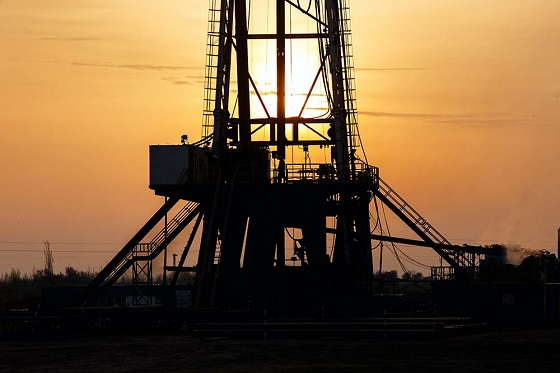
From the Frontier Centre for Public Policy
Without infrastructure, Canada is losing billions while the U.S. cashes in on our oil and gas
Canada’s energy wealth is stuck in traffic, and our American neighbours are cashing in. It’s worse than that. Canada is bleeding millions of dollars daily because it lacks the infrastructure to export its natural resources efficiently.
While our oil and gas continue to flow—mainly to the United States—provinces like Alberta and British Columbia are forced to sell at steep discounts. This isn’t just an economic inefficiency; it’s a structural failure of national policy. The beneficiaries? American businesses and their governments which pocket the profits and tax revenues that should be circulating through the Canadian economy. This is no way to achieve economic sovereignty for Canada.
With U.S. interests reaping the rewards, this should have been a central talking point when Prime Minister Carney met with President Trump earlier this month.
Ottawa often offers the recent completion of the Trans Mountain Expansion (TMX) pipeline as an example of federal support for the energy sector. But such claims are misleading. Kinder Morgan, a private enterprise, had initially planned to build the extension without a penny from taxpayers. It withdrew only after being crippled by federal regulatory delays and political uncertainty.
Ottawa stepped in not as a benevolent saviour to help Albertans, but to prevent lawsuits and save face—ultimately overpaying for the pipeline and watching construction costs balloon to nearly six times the original estimate.
To now declare this bungled project a “gift” to Alberta, as a recent op-ed in the Toronto Star did, is not only tone-deaf: it’s an insult. It ignores the fact that Alberta’s taxpayers helped finance the very project Ottawa botched. It also reveals an astonishing lack of understanding of the historical, economic and political dynamics at play between Ottawa and Western Canada.
The tragedy is that TMX, despite its importance, is insufficient. Our infrastructure bottlenecks remain. With each passing day, Canada forfeits wealth that could fund essential improvements in health care, education and national defence.
According to the Frontier Centre for Public Policy, which has developed a real-time tracker to monitor these losses, the price differential between what we could earn on global markets versus what we settle for domestically adds up to $26.5 billion annually.
Ottawa’s reluctance to greenlight new infrastructure is a primary cause of this problem. Ironically, the losses from this reluctance in a single year would be enough to pay for another TMX, mismanaged or not. The solution lies in a national commitment to building utility corridors: designated routes that facilitate the movement of energy, goods and services unhindered across provincial boundaries.
Carney’s recent promise to remove all interprovincial trade barriers by July 1 is a nice soundbite. But unless it includes meaningful infrastructure commitments, it is bound to fail like every other rhetorical flourish before it.
Canadians should be rightly skeptical. After all, what Ottawa has failed to achieve in the 157 years since Confederation is unlikely to be accomplished in the next 60 days.
The political math doesn’t help either. The Bloc Québécois holds the balance of power in the 45th Parliament, and its obstructionist stance on national pipeline development ensures the advent of more gridlock, not less. The federal government continues to uphold Bill C-69—dubbed the “no-pipelines bill”—further entrenching the status quo.
Meanwhile, Canada remains in the absurd position of relying on U.S. infrastructure to transport oil from the West to Ontario and Quebec. This undermines our economic independence, energy security and national sovereignty. No amount of “elbows up” will correct this enormous gap.
If the prime minister is serious about transforming Canada’s economic landscape and making the country strong, he must bypass the Bloc by cooperating with the Official Opposition. A grand bargain focused on utility corridors, interprovincial infrastructure and national trade efficiency would serve Alberta, Saskatchewan, and every Canadian who depends on a strong and self-reliant economy.
The stakes are high. We need a more productive country to face challenges within Canada and from abroad. Billions in lost revenue could fund new hospitals, more schools and better military readiness.
Instead, along with the limited exports of oil and gas, we’re exporting great opportunities to middlemen—and greater economic strength—south of the border.
The path forward is clear. A strong, self-reliant Canada needs infrastructure. It needs corridors. It needs leadership.
Marco Navarro-Genie is the vice president of research at the Frontier Centre for Public Policy. He is coauthor, with Barry Cooper, of Canada’s COVID: The Story of a Pandemic Moral Panic (2023).
-
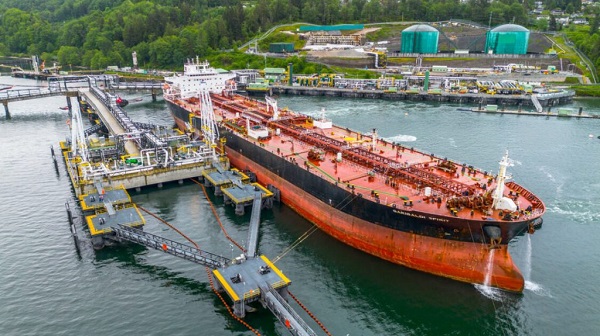
 Energy2 days ago
Energy2 days agoOil tankers in Vancouver are loading plenty, but they can load even more
-
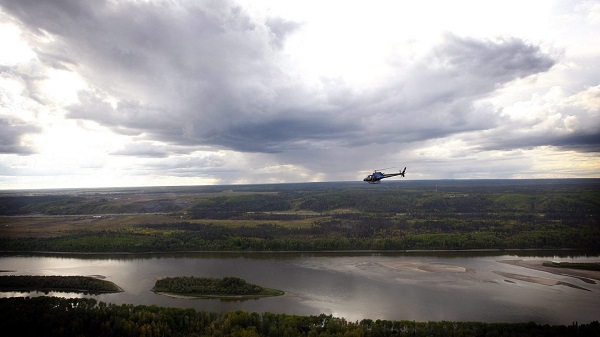
 Alberta2 days ago
Alberta2 days agoEnergy projects occupy less than three per cent of Alberta’s oil sands region, report says
-

 Alberta2 days ago
Alberta2 days agoCharges laid in record cocaine seizure
-

 Energy2 days ago
Energy2 days agoCarney’s energy superpower rhetoric falls flat without policy certainty
-

 conflict2 days ago
conflict2 days agoWATCH: U.S. ending bombing campaign on Yemeni militant group
-

 Crime2 days ago
Crime2 days agoPam Bondi Reveals What The Holdup Is With Epstein File Release
-

 Business1 day ago
Business1 day agoInnovative Solutions Like This Plan To Provide Power For Data Centres Will Drive Natural Gas Demand For Decades
-

 Business13 hours ago
Business13 hours agoTrump announces UK will fast-track American products under new deal
















